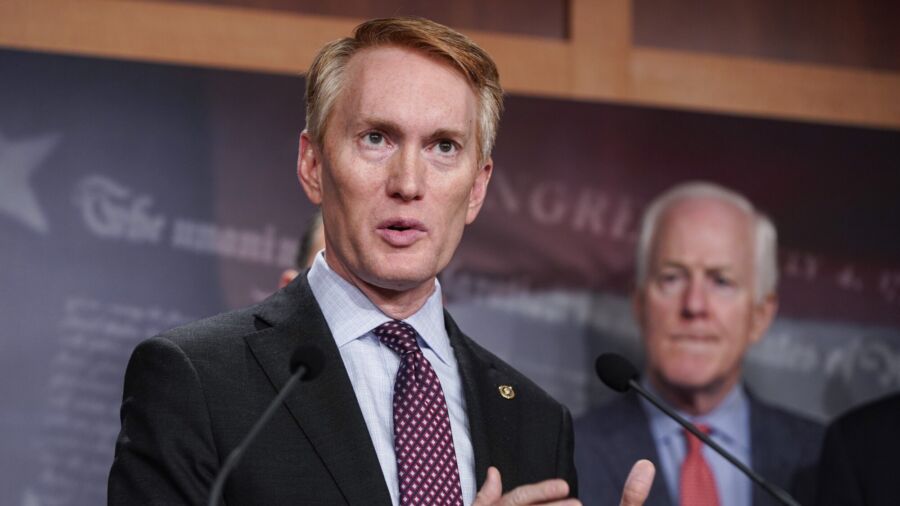As most Americans reset their clocks and adjusted to daylight savings time on Sunday, Sen. James Lankford (R-Okla.) renewed calls to do away with the practice and “lock the clock” on a set time.
Daylight savings came into widespread practice during the First World War as a method to maximize daytime productivity and save energy needed for artificial light. The practice returned during the Second World War and has continued after the war into the present day. The practice was standardized and largely fixed in place with the passage of the Uniform Time Act in 1966.
Mr. Lankford now finds himself among a movement to end the practice of daylight savings, which calls on most Americans to “spring forward” an hour every spring and then “fall back” an hour in the autumn time each year. He and Sen. Marco Rubio (R-Fla.) have repeatedly sponsored legislation, dubbed the “Sunshine Protection Act,” to lock the time across the United States.
A version of the Sunshine Protection Act passed in the Senate in 2022 but made no additional progress in the House of Representatives that year. Mr. Lankford and several of his colleagues remain committed to the issue.
“I hope we can keep the conversation going on this to actually pass Congress,” the Oklahoma senator said in an interview with CNN on Sunday morning, after daylight savings time went into effect.
According to Mr. Lankford, one point of contention appears to be over whether to make the one-hour “spring forward” time in Spring the new standard time year-round, or whether to make the autumnal one-hour “fall back” time the year-round standard. Prior to the implementation of the daylight savings system, the autumnal “fall back” time reflected the year-round standard.
“I know there’s arguments between North and South whether we should have Standard Time, Daylight Savings Time, where it should be,” Mr. Lankford told CNN. “My issue is lock the clock. Let’s not have the back and forth on this.”
Mr. Lankford argued that doing away with the practice of clock-changing would make life easier for parents with children.
“This has come up so many times with folks that are moms, that their little kids don’t make that shift,” he said.
Mr. Lankford also cast daylight savings as antiquated.
“It’s a relic of World War I actually, when we were trying to save lamp oil. Let’s actually flick our lights on, and we can do this,” he said.
Some states and territories are already off the daylight savings system. Hawaii never adopted the practice of adjusting its clocks. Arizona had used daylight savings over the years but discontinued the practice in 1967, just one year after the passage of the Uniform Time Act, instead making standard time permanent year-round. Within Arizona, the Navajo Nation has chosen to use the daylight savings system, while the Hopi Nation has chosen not to.
The territories of the Northern Mariana Islands, Puerto Rico, American Samoa, Guam, and the U.S. Virgin Islands also do not use the daylight savings system.
“In Arizona they’ve done this for years and somehow their kids are still getting to school on time, commerce is still happening and today in Arizona they’re not waking up with a clock that’s messed up,” Mr. Lankford told CNN.
The Uniform Time Act does permit states to decide whether they will participate in the daylight savings system, but states wishing to discontinue the practice can only revert back to permanent standard time, rather than using daylight savings time year-round.
State legislatures in Alabama, Colorado, Florida, Georgia, Idaho, Kentucky, Louisiana, Maine, Minnesota, Mississippi, Montana, Ohio, Oregon, South Carolina, Tennessee, Utah, Washington, and Wyoming have passed laws to adopt daylight savings time as the year-round standard if federal law ever changes. California voters approved a ballot measure in 2018 to discontinue the practice of changing their clocks, but the measure still requires implementation by the state legislature.


